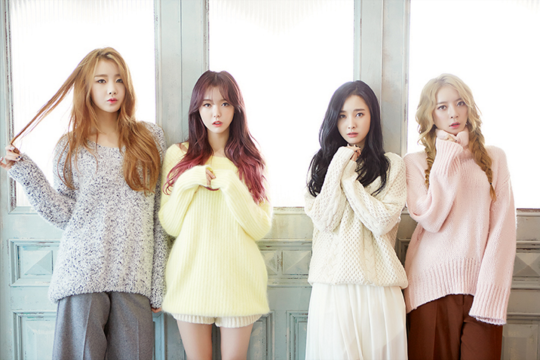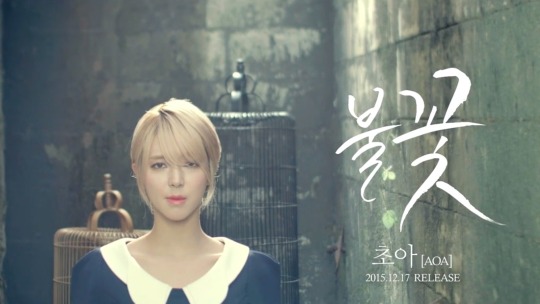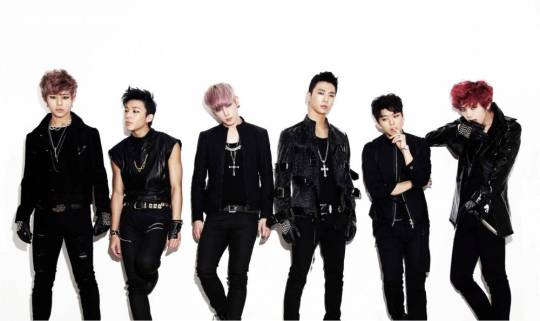Teen Top – Warning Sign (Music Video)
Teen Top – Warning Sign (Live Performance)
Teen Top – Warning
Sign
Reviewed
on January 31, 2016

Personal Message:
Like last-minute cramming for
university, I will also be doing some last-minute cramming for the blog. Or, at
the very latest, this will be a head start for February. On that note, I will
soon be searching for a suitable “Valentine’s Day” song to review. And for
those curious on what I will be doing this Valentine’s Day and White Day, I do
in fact have a special date: enjoying dark chocolate and coffee with my beloved
stuffed penguin. Quite romantic. Pitiful and embarrassing news aside, for more
relevant ones, besides, the upcoming reviews will be focused on mastering
the self-conceited news of how I am once again certainly set on my current career path (high
school English teacher)
a new style of reviewing. If it proves successful, I will be able to review a
song every other day. Assuming my average rate is four reviews per month, it
would humorously take three months to “catch up” on songs. Obviously, however,
that is not plausible. Thus, shortening down reviews to increase quantity will
be moreover worth it as a plethora of songs can now be covered, and that the blog
remains active.
As the last
review showcased, I am now attempting a more “natural” way of reviewing songs
rather than systematically dissecting them. (And the last review failed at
that, though it was a try.) The review rubric itself is certainly still in
place and thus, the review process is not necessarily changed. Rather, it is the
writing of the analysis that is changed as it should complement the ratings
versus deviating away as it currently does. And of course, no one truly desires
to read a seven-paged review on a single song.
Focusing on this current review,
Teen Top did have a recent comeback: “Warning Sign.” Last summer, I did review
the men’s “Ah
Ah” (along with having a lengthy digression regarding homophobia;
thankfully or sadly, for this review there will be no digression), and if I
recall, it only rated at slightly above average (six). With “Warning Sign,” however,
I will leave a warning: it should score at above average (seven). Also, there
is the warning of how the gentlemen are extremely beautiful in this comeback to
the point of injuring viewers’ eyes (their makeup and fashion in the music
video are seducing), but that is a cost male and female fans would be willing to
accept. Returning to “Warning Sign” on a serious tone, compared to many prior
songs by the group, I will say this holds as their strongest release. I am
stunned at their improvement, and though they are considered unpopular, this
comeback should definitely challenge that. After all, even the gentlemen are
aware: they left a warning sign.
_______________________________________________________
Song Score: 6/10
(6.2/10 raw score) – “Slightly above average”
–
Vocals: 7/10
–
Sections: 6/10 (6/10 raw score)
Introduction, Verse,
Pre-Chorus, Chorus, Verse, Pre-Chorus, Chorus, Bridge, Rap, Chorus, Conclusion
1. Introduction:
5/10
2. Verse: 6/10
3. Pre-Chorus: 5/10
4. Chorus: 7/10
5. Bridge: 6/10
6. Rap: 6/10
7. Conclusion: 7/10
–
Line Distribution: 3/10
C.A.P:
Conclusion (Total: 1)
Chunji:
Pre-Chorus 1, Chorus 1, Verse 2, Pre-Chorus 2, Chorus 2, Chorus 3, Conclusion
(Total: 7)
L.Joe:
Rap (Total: 1)
Niel:
Verse 1, Pre-Chorus 1, Chorus 1, Verse 2, Pre-Chorus 2, Chorus 2, Conclusion
(Total: 7)
Ricky:
Verse 1, Verse 2, Bridge (Total: 3)
Changjo:
Introduction, Verse 1, Pre-Chorus 1, Verse 2, Pre-Chorus 2, Chorus 3 (Total: 6)
Equal Value: 4.17 sections per member.
–
Instrumental: 7/10
–
Lyrics: 8/10
You wanna play girl?
No more games
Now we sober
How long did you guess you
could fool me?
You are caught in a trap
that I accidentally put you in
Your mind was on alcohol, unstable
It’s trapped already, baby
You can’t hide anymore, lady
Oh, our eyes met
Who was that guy standing next to you?
You passed me without hesitating
Don’t avoid me now
Won’t stop, you won’t stop
Your cruel excuses are making me mad
Your messy hair,
unbuttoned shirts are telling me
You shake your hands because your play is over
I won’t be fooled again
I should get away from you baby
What exactly has changed you? Seriously
Where did you hide your confidence?
Why do you keep crying?
Your words are all from your scenario
I was being played by your scenario
And that’s this story
Were you even upset, baby?
No, you were enjoying this
You don’t know
There isn’t a wall in the world
There’s no warning sign
that you are dreaming of
I know what’s inside of your innocent looking eyes
Don’t pretend you don’t know them
Won’t stop, you won’t stop
Your cruel excuses are making me mad
Your messy hair,
unbuttoned shirts are telling me
You shake your hands because your play is over
I won’t be fooled again
I should get away from you baby
I can’t go back
I can’t stop either, oh
My heart is heavy
Everything you did, every single thing
When I look back, I can’t forgive you
But I just can’t
Your shaking eyes
are shaking my heart
Now what?
Your cruel excuses are making me mad
Your messy hair,
unbuttoned shirts are telling me
You shake your hands because your play is over
I won’t be fooled again
I should get away from you baby
I can forgive you once
Please, baby, help me
I can’t go back
I can’t stop either, oh
Once is a mistake
Let’s get over it together
I can’t go back
I can’t stop either, oh
Choreography Score: 8/10 (8/10 raw score)
– Syncing: 8/10
– Key Points: 8/10
Overall Score: 7/10
(7/10 raw score)
_______________________________________________________
Analysis: After
calculating all of the scores, for the Song Score, an appalling six is in place—appalling
in the sense of how it is not a seven, that is. Musically, “Warning Sign” is in
fact impressive, but unfortunately one category drains down the score: the Line
Distribution. A huge discrepancy is in place as Niel, Chunji, and Changjo carry
a large bulk of the song while the remaining members are left with one or three
sections. Because of this atrocious distribution, “Warning Sign” in whole does
become impaired. Musically, the song now loses potential for vocal variety with
every member’s voice, and organizationally, the lack of presence from half of
Teen Top creates a sense that “Warning Sign” consists of three members and
three featured artists—a notion that is completely inaccurate. That notion is
understandable, though, considering L.Joe and C.A.P appear only once throughout
the entire song.
Nevertheless,
despite the Line Distribution being a major setback, it still miraculously
comes with benefits. As Niel and Chunji, the two main vocalists of Teen Top,
now have additional spotlight from the song’s distribution, the song’s overall vocals
become greatly augmented. Both men deliver powerful vocal belts, soft and high
pitched lines, and precise control. That said, the other members still also
contribute excellent vocals, be it for the rap, bridge, or even single lines.
(And Changjo has his moment with the incredible choruses.) Now that the
sections have been mentioned, the ratings for them are varied: a few score
highly while others score neutrally. The most prominent issue regarding the
lower scored sections would be in repetition. “Warning Sign” is oriented towards
a slower, rhythmic flow (the instrumental plays a significant role, as to be
discussed later), and as a result, sections prior to the choruses do tend to
sound extremely akin and lacking individuality. From there, mundaneness builds
up, of which is never desirable as a song then loses appeal. Nonetheless, there
is one phenomenal gain that comes from the song’s linear flow: creating hype
for the choruses. Since the choruses are upbeat, diverse with pitches, and
vocally intensive, these traits greatly contrast the other sections’ stagnant
attributes, and due to that, the choruses become additionally enticing.
Coupling that with how the choruses are already indeed individually strong, a
high rating comes. But unfortunately, as noted the Sections category still scores
at a six as it is mainly the choruses that strike as stunning.
To
now return to the mentioned point of the instrumental, a prominent and deep
bass line takes the main spotlight. If possessing a charming, soothing aspect
is not sufficient enough, the instrumental also perfectly establishes the song’s
style as vocals are provided a sound foundation (no pun intended) that
perfectly adapts based on whether it is the chorus or not. Finally, in regards
to the Lyrics and Choreography categories (and that I still need major practice
of not reviewing systematically), both score outstandingly.
The
lyrics tell an intriguing and complex story; the song is more than a man
catching his partner cheating. (And as always, songs are gender and orientation
neutral; I am asserting the main character is a male based on the music video,
but this is certainly not the “right” interpretation.) Questions exist on
whether the partner does cheat, and if she does in fact, then there are
questions still regarding how the main character feels. Is he going to end the
relationship, or is he going to continue staying with her despite her incident?
Specifically towards the ending, the plot becomes incredibly deep and complex.
Furthermore, for a very unique take, unlike other songs I have reviewed where
the lyrics do not necessarily or directly relate to the lyrics’ plot, “Warning
Sign” does seem to relate to the two. Once again, focusing on the ending, the
main character is in conflict with how to act, and the song itself reflects
such: there is alternating between firm, confident rapping and hesitant, softer
singing. Arguably, this may be pure coincidence, but given that this is the
first song reviewed to have such a distinctive connection between lyrics and
audio, a slight bonus is earned.
In
terms of the choreography, Teen Top’s stellar dancing skills come to attention.
The men have notable popularity for their footwork in dancing, but that is not
all in “Warning Sign”: “handwork” is also flaunted. Clearly showcased in their dance practice (I did not find it
earlier, hence why it was not linked), key points are exceptionally
strengthened through their expert movements with hands and feet, and with every
maneuver differing from others in speed and power, appeal is continually
maintained. Needless to say, syncing is also sharp: from slow, graceful
movements to hasty twists, every key point perfectly links back to the music.
Overall,
though “Warning Sign” fails to score at a seven (in terms of the Song Score),
it should be emphasized that the fault in the song is not even within the song
itself, but rather, how the song’s lines are shared. If the Line Distribution
was higher, “Warning Sign” would possess an exquisite rating. All in all,
though, Teen Top’s comeback is something to absolutely adore. The concept is
ominously intriguing; the dancing is superb; the vocals are lively and melodic;
exceptional choruses exist; and so forth. Definitely, this is the best song
Teen Top has released yet, and improvement is observable. Following this trend,
I will be looking forward to more releases by the men in the future.
_______________________________________________________
As always, thank you very much to
readers for reading or skimming any portion of this review. Any given time
towards the blog is appreciated, so thank you. Reflecting over the review’s
writing, I am starting to get a feel regarding being concise. Brainstorming a
bit more, I have many ideas in mind for how to proceed.
For one, I could review a song section
by section and then incorporate the categories’ (Vocals, Instrumental,
Sections, etc.) analyses, but this would risk being too linear and systematic.
The second idea, and one I am seriously ruminating over, is to not even worry
of addressing every category specifically. For example, there have been reviews
where a certain category is simply not worth discussing, such as with a verse
that contains no interesting points in vocals or structure. Thus, I would
discuss points that are relevant and interesting, and simply slide over the
rest. The third idea is to utilize a “pros and cons” format, but that runs the
risk of being too systematic and arguably boring. Finally, and this is the idea
I feel most allured to, the fifth method would be to use a writing strategy I
learned in my English class: “They say, I say.” This writing style would be
most interesting as it is engaging in a discussion rather than merely beginning
one. In truth, many if not all of my reviews are focused on “I say”; I simply
share what I think and do not engage with what others say. Therefore, with this
“They say, I say” format, I would review songs in an almost reply-like style.
Perhaps the general public’s opinion could be focused on for agreement or
disagreement, or perhaps other reviewers’ points may even be discussed. Or,
even more simply, the “They say” could even be my own ratings—though this does
sound ironic on the surface as I would be disagreeing with my own ratings. But,
even in that scenario, it keeps a discussion occurring rather than a one-way
lecture, and the former is what reviews are aimed for.
The next review will be a trial for this
“They say, I say” idea. Hinting what is next, another male artist is in mind,
though Stellar’s “Sting” is certainly to be reviewed. To give proper respect to
“Sting” as I will be discussing important social topics within the review, I
wish to refine my reviews themselves before I do begin reviewing the song. (And
with the mentioning of social topics, I could have discussed the importance of “Warning
Sign” ‘s music video/pop culture in general including racial diversity, but I
will save this for another time.)
Ending this review, I am quite
excited for the next one as I do feel that it will soon be possible to truly
catch up on songs. If reviews become more concise and even more entertaining
and thought-provoking, then that would be the best outcome possible. Stay tuned
for the next review, and for hopefully a perfected format. “I can’t go back” to
the old one, after all.



